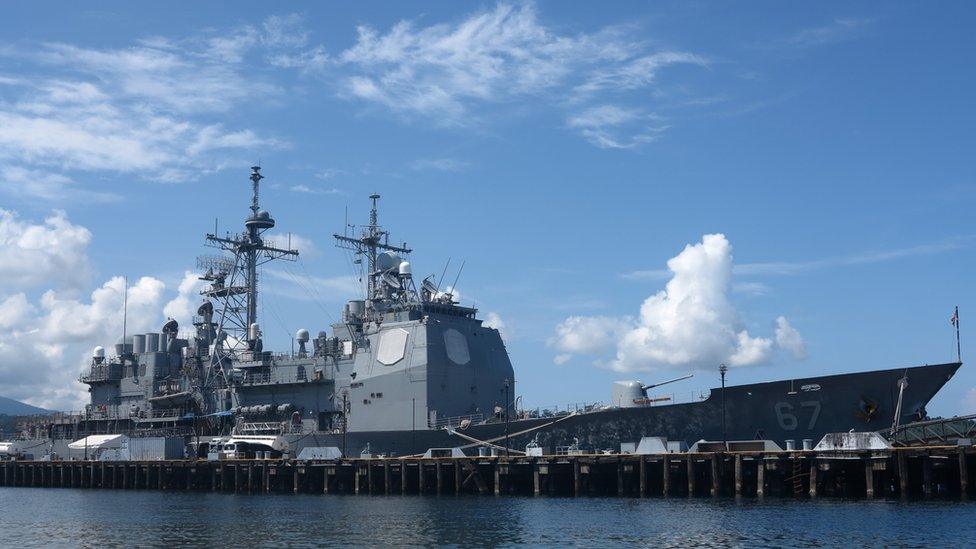China warns Australia over South China Sea dispute
- Published
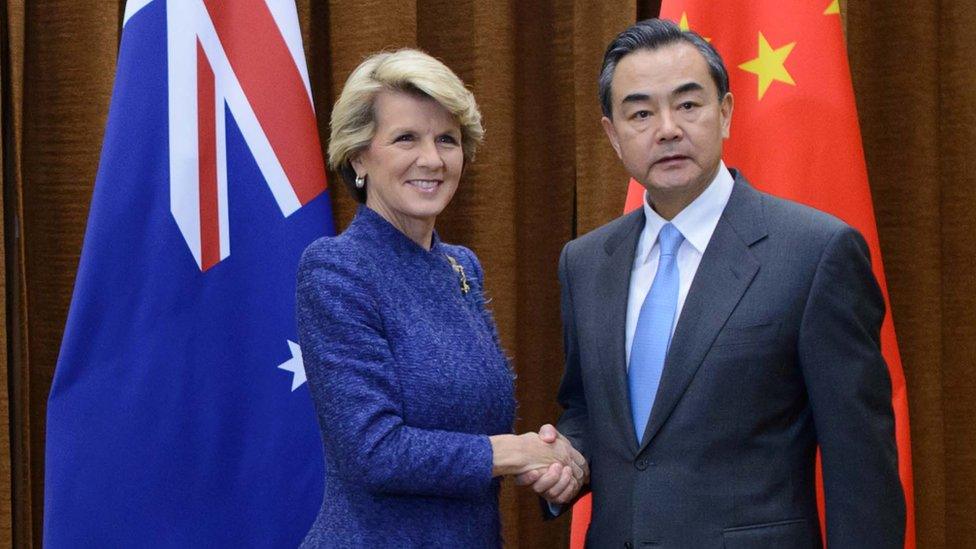
Australia's Foreign Minister Julie Bishop is due to meet with her Chinese counterpart Wang Yi in Beijing for strategic dialogue
China has urged Australia to take a "fair" stance over its activities in the South China Sea, ahead of high level talks.
Australian Foreign Minister Julie Bishop had said she would ask China about its plans for reclaimed islands it has built in disputed waters.
But a Chinese foreign ministry spokesman warned Australia not to "harm regional peace and stability".
Trade ties are likely to dominate talks with China's Foreign Minister Wang Yi.
Ahead of her arrival in Beijing on Tuesday, Ms Bishop said Australia did not take sides, but was awaiting the outcome of a challenge by the Philippines to Beijing's territorial claims at an arbitration court in The Hague.
"We recognise the Philippines' right to seek to resolve the matter through arbitration, but we urge all claimants to settle their disputes peacefully without coercion, without intimidation," she said.
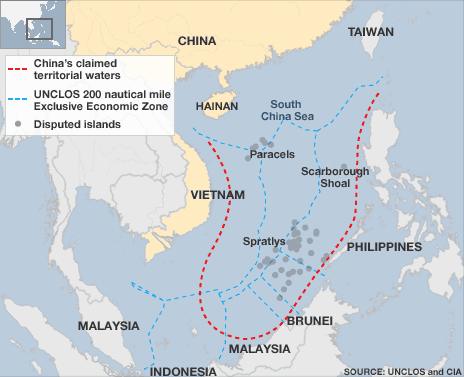
China's claims are identified by the so-called "Nine-dash line" map that was first publicised in 1947
Beijing told Australia "not to selectively avoid" its belief the court action violates consensus and does not comply with international law.
China claims a huge area in the South China Sea as its territory, including the Paracel and Spratly island chains.
Its claims overlap with territory claimed by the Philippines, Vietnam, Malaysia, Indonesia and Brunei.
China has enforced its claims through naval patrols and by reclaiming land in the disputed areas.
Mr Wang publicly rebuked Ms Bishop at a press conference in 2014 after Australia criticised its unilateral establishment of an air defence zone in the East China Sea, covering islands at the centre of a dispute with Japan.
He accused Australia of taking a position that ''jeopardised bilateral mutual trust and affected the sound growth of bilateral relations''.
A senior Australian foreign affairs official who was taken aback by the incident later said that he had "never in 30 years encountered such rudeness".
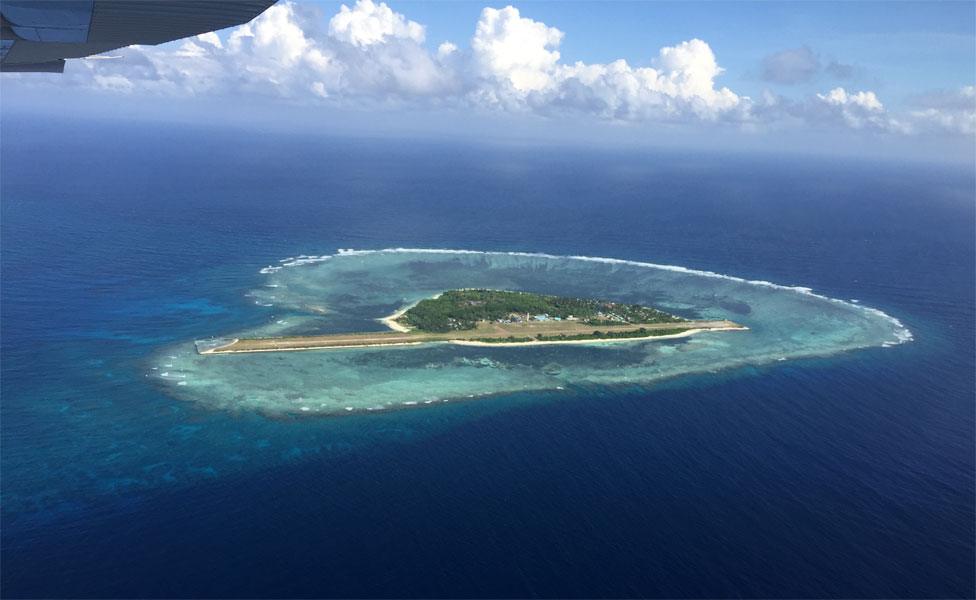
The island of Pagasa in the South China Sea is controlled by the Philippines

What is the South China Sea dispute?
Rival countries have wrangled over territory in the South China Sea for centuries, but tension has steadily increased in recent years.
China has backed its expansive claims with island-building and naval patrols, while the US says it opposes restrictions on freedom of navigation and unlawful sovereignty claims - by all sides, but seen by many as aimed at China.
The frictions have sparked concern that the area is becoming a flashpoint with global consequences.
Although largely uninhabited, the Paracels and the Spratlys may have reserves of natural resources around them. There has been little detailed exploration of the area, so estimates are largely extrapolated from the mineral wealth of neighbouring areas.
The sea is also a major shipping route and home to fishing grounds that supply the livelihoods of people across the region.

- Published17 February 2016
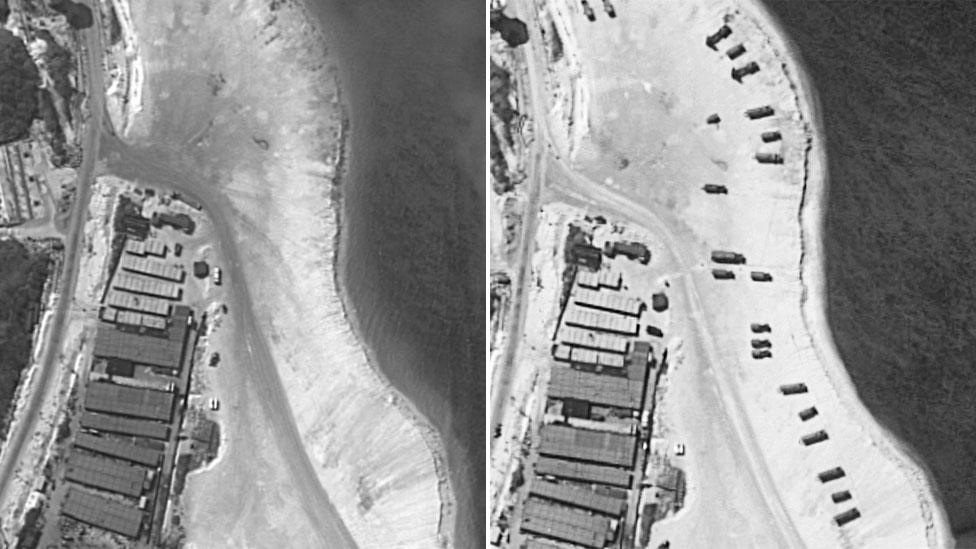
- Published29 December 2015
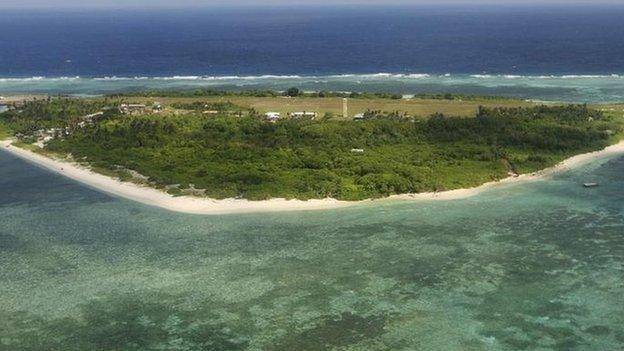
- Published17 February 2016

- Published14 December 2015
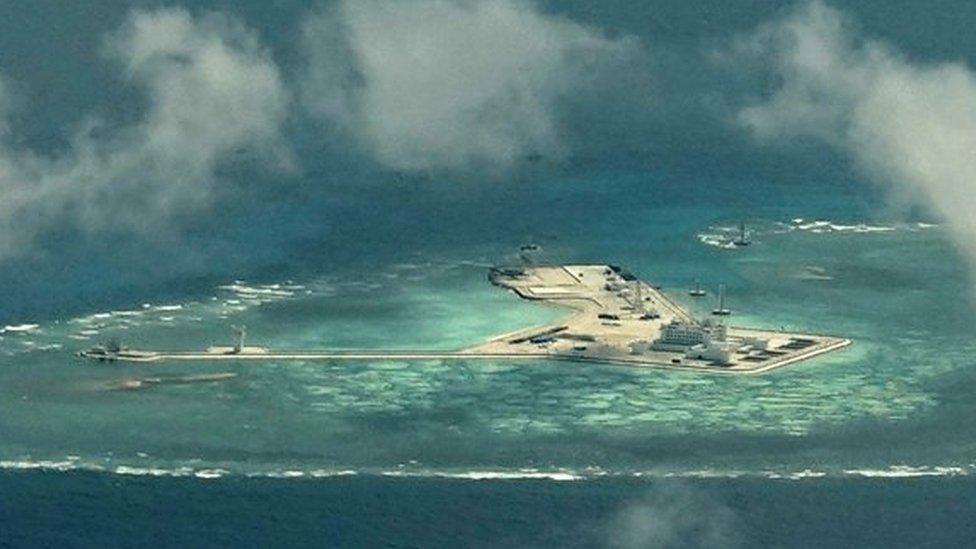
- Published7 July 2023
